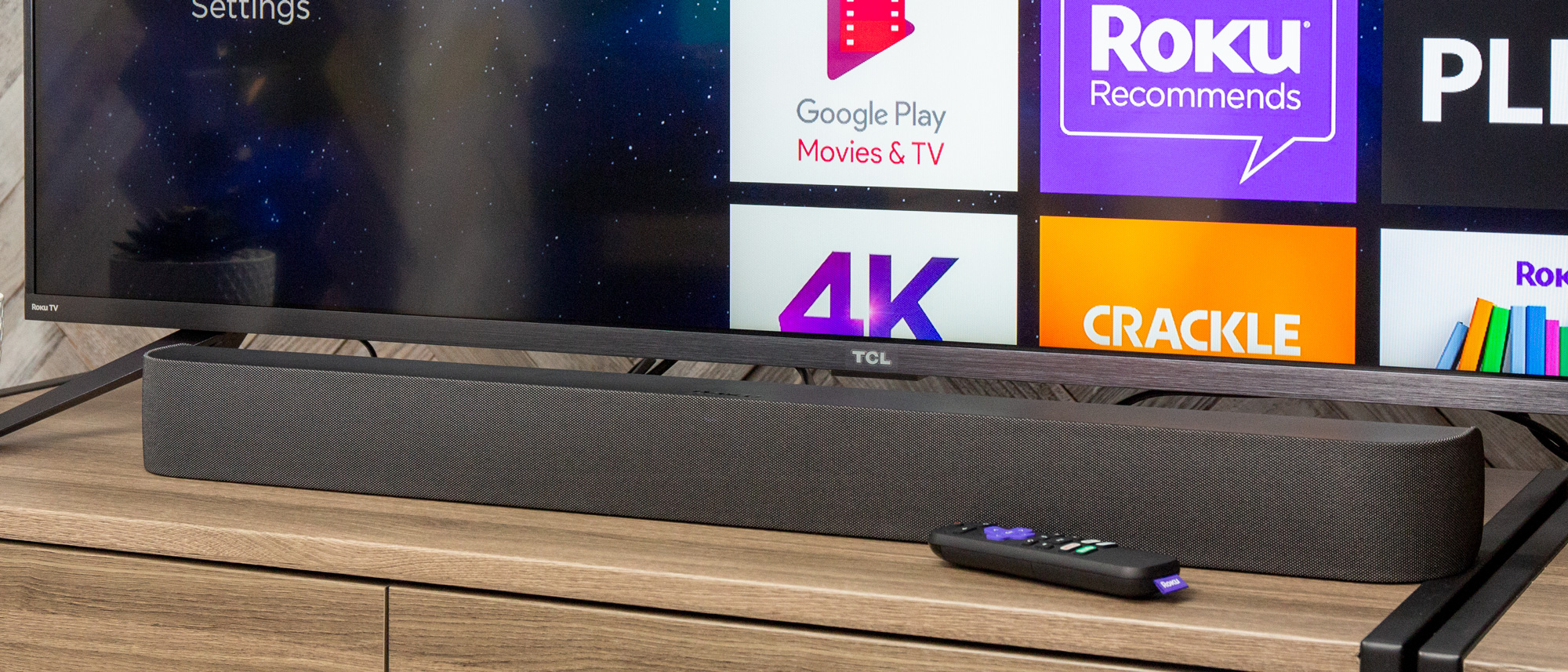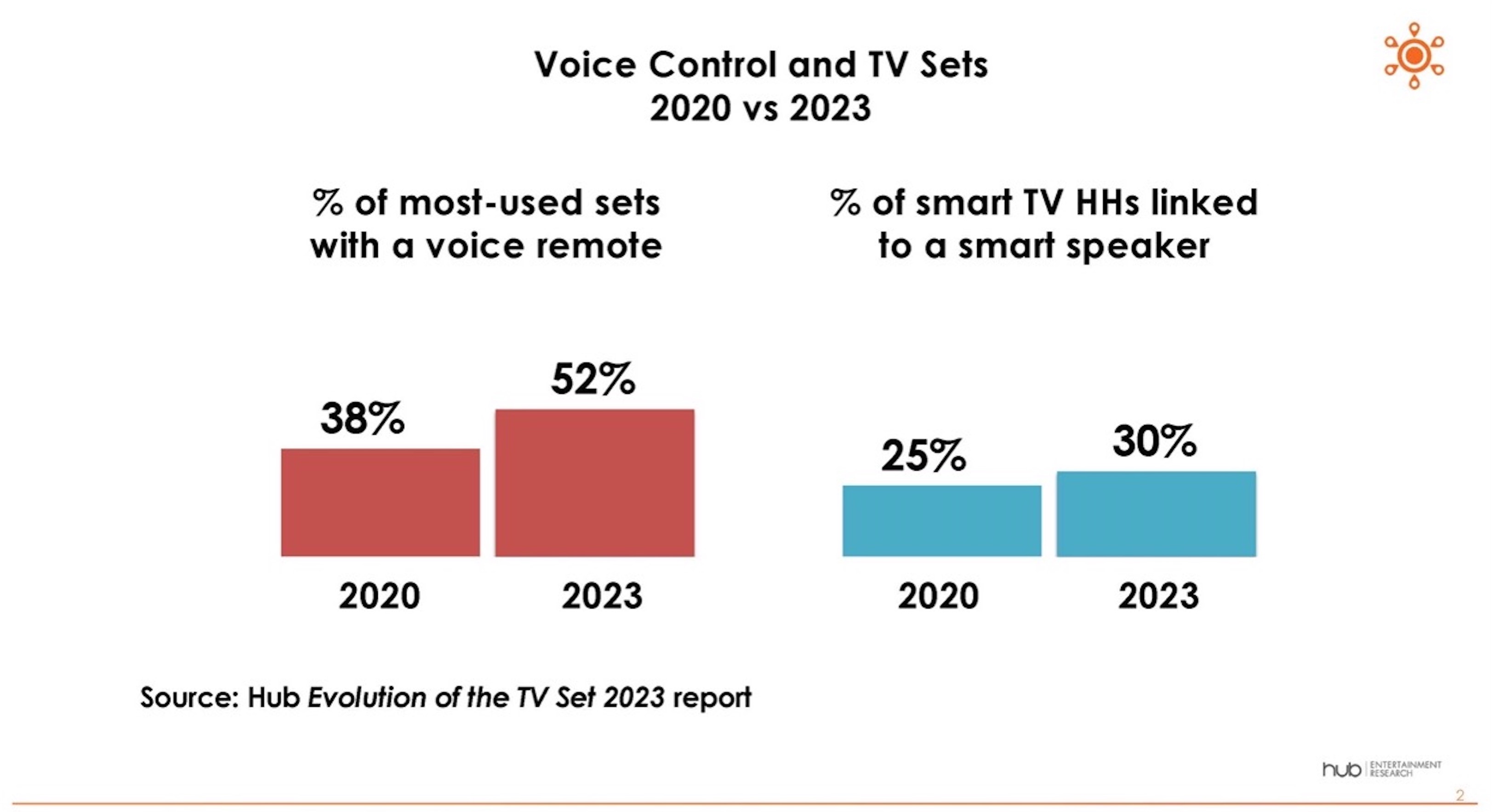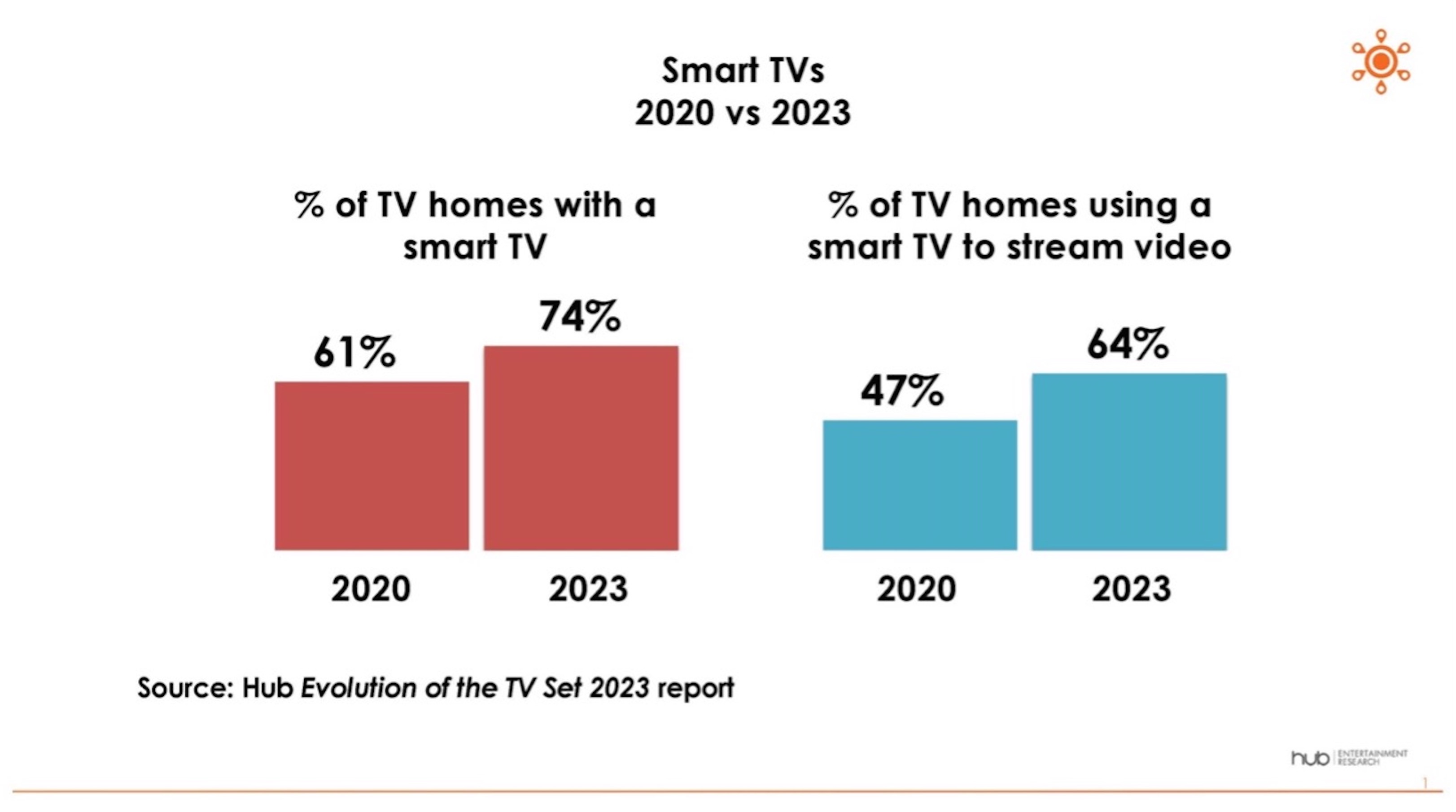
The market for peripheral speakers that connect directly to smart TVs via Bluetooth, which still feels kind of newish, has already peaked, according to Hub Entertainment’s latest Evolution of the Smart TV Set report, which surveyed 2,504 U.S. consumers in May.
Hub said only 30% of U.S. smart TV owners have a smart speaker device connected to their set, “down significantly from 2021.”
As this graphic from Hub's report shows, smart speaker penetration hasn’t really moved all that much in three years (although voice remote usage does seem to be on the uptake).

Globally, the “smart speaker” market is led and defined by Amazon’s Alexa and Google Voice-powered gadgets. But vendors including Roku and Vizio moved aggressively into a sub category of the market four years ago with peripheral speaker devices designed to be connected directly to smart TVs via Bluetooth.
And it’s that latter category we're kicking the tires on here — the Hub survey, smallish as it is, indicates these devices haven't reached mass appeal and that’s a bit counterintuitive, based on other survey results.
With 47% of survey respondents saying they use their smart TVs to stream music (up from 27% in 2020), it would seem these Dolby 5.1-capable gadgets would have captured greater market demand by now.
Overall, the report said smart TV penetration is closing in, but hasn’t arrived yet, upon saturation of the U.S. market, with 74% of homes now equipped with such a device, up from 61% in three years.
Sixty-four percent of those homes use their smart TV to stream video, up from 47% in 2020.

Hub also said that 40% of U.S. smart TV's are controlled by the Roku operating system — a leading market-share statistic that hasn’t changed much over the past several years.
The research company said that “overall familiarity” with runner-up brand Amazon Fire TV is about two-thirds of that of Roku.







